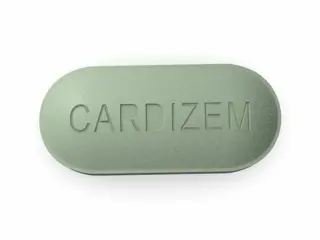| Package | Dosage | Price | Price per Dose | |
|---|---|---|---|---|
| Dosage: 30mg | ||||
| 360 pill | 30mg | €276.64 | €0.77 | |
| 270 pill | 30mg | €217.75 | €0.81 | |
| 180 pill | 30mg | €154.75 | €0.86 | |
| 120 pill | 30mg | €115.03 | €0.96 | |
| 90 pill | 30mg | €93.12 | €1.03 | |
| 60 pill | 30mg | €67.10 | €1.11 | |
| 30 pill | 30mg | €35.60 | €1.19 | |
| Dosage: 60mg | ||||
| 360 pill | 60mg | €379.36 | €1.05 | |
| 270 pill | 60mg | €288.97 | €1.07 | |
| 180 pill | 60mg | €194.47 | €1.08 | |
| 120 pill | 60mg | €132.84 | €1.11 | |
| 90 pill | 60mg | €105.44 | €1.16 | |
| 60 pill | 60mg | €72.57 | €1.22 | |
| 30 pill | 60mg | €39.70 | €1.30 | |
| Dosage: 90mg | ||||
| 360 pill | 90mg | €561.52 | €1.56 | |
| 180 pill | 90mg | €293.08 | €1.63 | |
| 120 pill | 90mg | €198.58 | €1.66 | |
| 90 pill | 90mg | €156.12 | €1.74 | |
| 60 pill | 90mg | €109.55 | €1.82 | |
| 30 pill | 90mg | €58.88 | €1.96 | |
| Dosage: 120mg | ||||
| 360 pill | 120mg | €621.78 | €1.73 | |
| 270 pill | 120mg | €476.60 | €1.77 | |
| 180 pill | 120mg | €325.95 | €1.81 | |
| 120 pill | 120mg | €227.34 | €1.89 | |
| 90 pill | 120mg | €179.40 | €1.99 | |
| 60 pill | 120mg | €127.36 | €2.12 | |
| 30 pill | 120mg | €79.42 | €2.64 | |
| Dosage: 180mg | ||||
| 270 pill | 180mg | €680.67 | €2.52 | |
| 180 pill | 180mg | €465.64 | €2.59 | |
| 120 pill | 180mg | €313.62 | €2.62 | |
| 90 pill | 180mg | €247.88 | €2.75 | |
| 60 pill | 180mg | €175.29 | €2.93 | |
| 30 pill | 180mg | €95.86 | €3.20 | |

Diltiazem Description
Introduction to Diltiazem
Diltiazem is a medication widely used in the treatment of various cardiovascular conditions. It belongs to a class of drugs known as calcium channel blockers. These medications work by relaxing the muscles of the heart and blood vessels. As a result, Diltiazem helps to reduce blood pressure, improve blood flow, and prevent certain heart-related complications. It is prescribed for conditions such as hypertension, angina, and certain types of arrhythmias. Patients often find this medication effective when used under medical supervision.
How Diltiazem Works
The primary mechanism of Diltiazem involves blocking calcium ions from entering the cells of the heart and blood vessel walls. Calcium is essential for muscle contraction, including in the heart. By blocking calcium influx, Diltiazem causes relaxation of the smooth muscle in the arterial walls. This vasodilation results in lowered blood pressure and decreased workload on the heart. In the case of angina, it improves oxygen delivery to the heart muscle and reduces the frequency and severity of angina attacks. The medication's ability to affect the electrical activity of the heart also helps stabilize abnormal heart rhythms.
Usage and Dosage
Patients typically take Diltiazem in the form of tablets or extended-release formulations. The dosage varies depending on the condition being treated, the patient's age, and overall health status. It is essential to follow the prescribing physician's instructions carefully. Usually, Diltiazem is taken with or without food, often once or twice daily. Regular monitoring of blood pressure and heart function is advised during treatment. Patients should inform their healthcare provider about any other medications they are taking to avoid potential interactions.
Potential Benefits of Diltiazem
This medication provides several benefits for patients with cardiovascular issues. It effectively lowers high blood pressure, helping to prevent strokes, heart attacks, and kidney problems. For those with angina, Diltiazem reduces chest pain and increases exercise tolerance. It can also help control certain arrhythmias, contributing to a more regular heartbeat and reducing symptoms like palpitations or dizziness. Many patients experience symptom relief when adhering correctly to their prescribed treatment plan.
Possible Side Effects and Precautions
Although Diltiazem is generally well tolerated, some users experience side effects. Commonly reported issues include headache, dizziness, flushing, swelling of the ankles or feet, and upset stomach. More serious but less common side effects may involve irregular heartbeats or worsening of heart failure symptoms. Patients with certain medical conditions, such as severe heart block or heart failure, should use this medication with caution. It is vital to discuss allergies, medical history, and other medications with a healthcare provider before starting Diltiazem.
Interactions and Safety Tips
Diltiazem may interact with other drugs, including beta-blockers, certain antifungals, or other blood pressure medications. Such interactions can enhance side effects or affect the efficacy of the treatment. Patients should inform their doctor about all medications they are taking. Alcohol consumption should be limited, as it can increase the risk of side effects like dizziness or low blood pressure. Regular check-ups and blood tests help ensure safe use and optimal benefits from the medication.
Conclusion
In summary, Diltiazem is an effective medication for managing hypertension, angina, and arrhythmias. Its ability to relax blood vessels and regulate heart rhythm makes it a valuable option for many patients. However, like all medications, it requires proper medical oversight to minimize risks and maximize benefits. Patients should adhere strictly to prescribed doses and report any unusual symptoms to their healthcare provider promptly.
